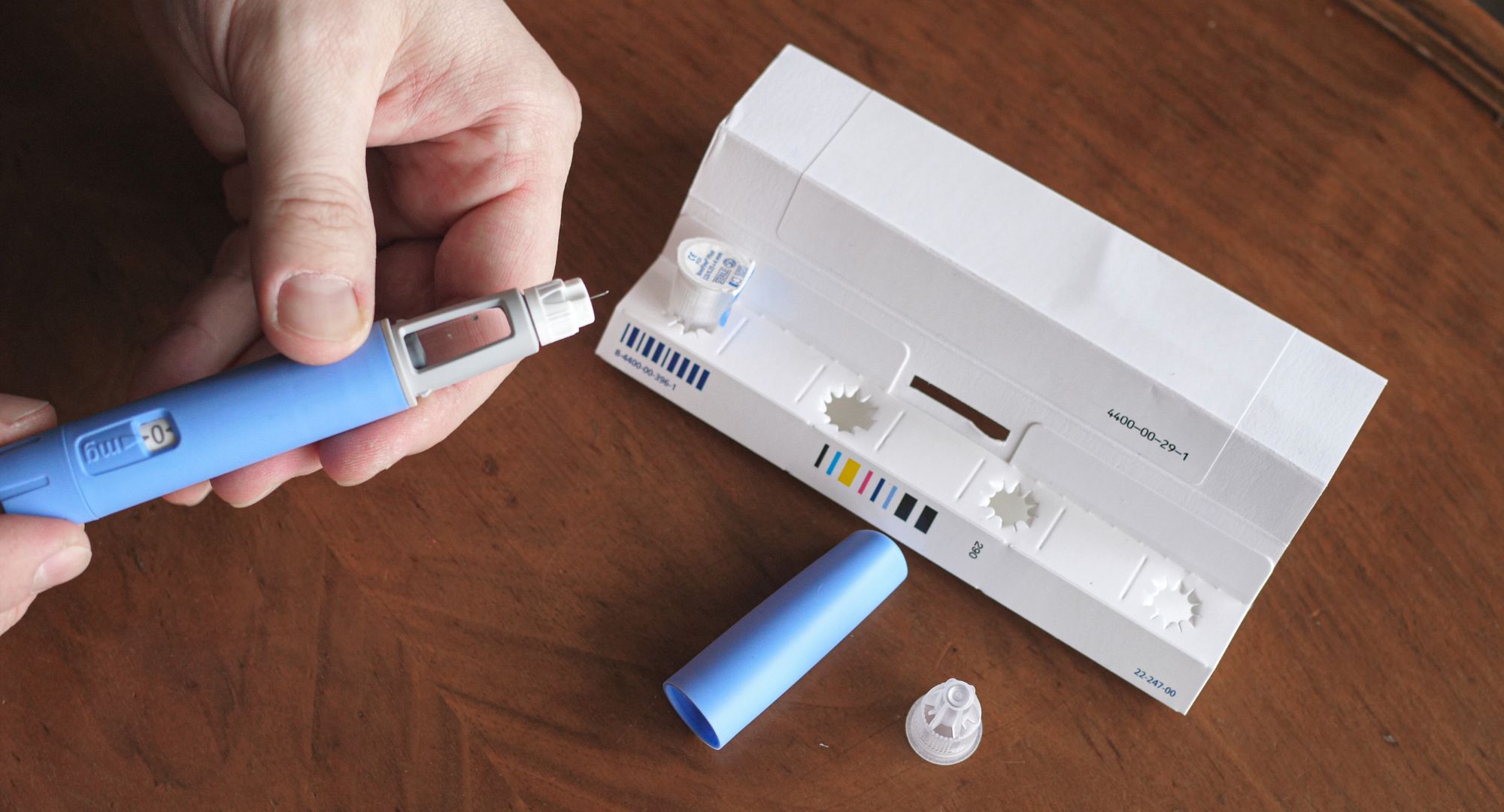By: Leiah Dotlich, FNP-C
Semaglutide (brand names: Wegovy and Ozempic) has gained popularity over the past few years, and rightfully so. There have been several anti-obesity medications that help suppress appetite and achieve weight loss, but Semaglutide performs on a new level. An early study of 2,000 obese adults compared people who used Semaglutide in addition to a diet and exercise program with people who made the same lifestyle changes without Semaglutide. After 68 weeks, half of the participants using semaglutide lost 15% of the body weight and nearly a 3rd lost 20%. Participants were incorporated only lifestyle changes lost about 2.4% of the weight (UCLAhealth, 2023). For emphasis, 20% of 200 pounds is 40 pounds, while 2.4% of 200 pounds is 4.8%. I take Semaglutide myself and have lost 13 pounds in 2 months.
Because of the above-mentioned benefits, more and more people are willing to incorporate Semaglutide in conjunction with lifestyle changes to achieve their goals. As a health care provider and a user of Semaglutide myself, I would like to discuss the not so commonly talked about topics regarding Semaglutide.
- How does it work?
- Per literature, Semaglutide mimics a hormone that stimulates the pancreas to produce more insulin, in turn lowering blood sugar, reducing cravings, and slowing digestion. All these mechanisms keep you from overeating, ultimately leading to weight loss.
- Based on my experience, when I took my first dose, I noticed a large decrease in my appetite after 24 hours. During the first month, there was still a noticeable reduction in “food noise.” For example, I did not crave for chocolate ice cream after lunch and dinner, and I did not crave for my daily soda with lunch. I did notice that I could not starve myself. For example, my body feels hunger a few hours after an hour of my HIIT (high intensity interval training) class (after burning 500 to 600 calories). I do eat, but a smaller portion not because I am consciously trying, but because I don’t feel like eating as much. Also, if I skip a meal, I will be noticeably hungry, but once I start eating, I do get fuller faster. I am currently on the 0.5 mg SQ dose and I eat breakfast, lunch, and dinner. My starting weight was 130 pounds, and I now weigh 117 pounds after 9 weeks. I no take my daily Celsius energy drink and can barely finish a half a cup of coffee. I still eat my pastries and chocolate ice cream when I want it, but can only eat a few bites. Before Semaglutide, the thought of cutting back on portions made me feel restricted and sad. While on Semaglutide, the thought of eating when I feel full made me feel nauseated.
- What are the most common side effects
- Nausea. For me personally, nausea and constipation. I experienced nausea on day 1 of my first injection and day 1 of my 2nd injection. I also feel nausea and heartburn when I allow myself to have an empty stomach. To prevent this, I try to eat a small healthy snack. When I say small, I mean 2 bites of something.
- Constipation. I was always prone to constipation and my regular schedule was either daily or every other day. While on Semaglutide, I did feel that my stool was harder and I had less frequent bowel movements (every 2 or 3 days initially). I tried miralax as a stool softener, which made the stool soft, but did not help with regularity. What helped me was daily fiber intake. I started taking overnight oats or cereal for breakfast. I also drink water all day long.
- Headache. I personally did not experience this, but a few of my clients have. The headache seem to happen if they do not eat when hungry, because as soon as they do eat, the headache goes away. Some people also allow themselves to get dehydrated. Staying hydrated can prevent the headaches, dry mouth, and constipation. I keep a 16 oz bottle of water at bedside so I can drink overnight.
- Fatigue. I personally did not experience this. I had a client who reported a decrease in energy when he first started. It did resolve after the first month. I believe its likely due to his body adapting to the changes. Another possible reason is the reduced oral intake. I do encourage adequate protein and vitamin intake. I also recommend monthly or bi-weekly B12 injections for energy.
- Increased energy. Our patient care coordinator in the office and another client reported a jolt of energy after their first injection. I did experience this, and again, I no longer take my daily energy drink because I do not need it to function in the morning.
- Bloating. Less common. I had one patient report this, and she was on her monthly cycle. The feeling was transient and self-limiting.
- What is my advice to someone who wants to lose weight and keep it off?
- Have realistic expectations. Sure, Semaglutide is a very effective drug that can help you lose weight faster than exercise and diet changes alone. However, keep in mind that most of us took years to gain the excess weight, and rightfully, we should expect to lose the weight slowly. Also, losing weight rapidly can pose electrolyte imbalances and loose skin compared to when weight is lost at a slower rate.
- Do not rely on the medication 100%. Use it as a boost. In order to maintain the weight that is lost while on Semaglutide, we need to continue lifestyle changes. For example, one slice of pizza or one serving of ice cream is ok, but 3 slices of pizza and a whole pint of ice cream is not ok.
- Listen to your body. If you skipped dinner and is hungry the next day, then eat. Each of us need to consume a certain amount of calories to maintain homeostasis. I tell my initial weight loss patients to refuse to leave my office unless I calculate a BMR (basic metabolic rate) for them.
- Trust the process. If you take the medication as prescribed, follow up with your provider as scheduled, hydrate, adhere to the caloric restriction and physical activity plan agreed upon with your provider, you will see results within a month.
- Talk to your provider about questions and concerns. My goal as a provider is to help my patients achieve their goals in a manner that is tailored to them, and not cause them any harm. I would like to hear about adverse effects and difficulties so that we can modify the treatment plan that would suit their unique needs.
What do you think of this article? Do you have a similar experience with Semaglutide? As a patient interested in weight loss, what are you looking for in a health care provider? Please comment below or email us at customerservice@wellnessmdspa.com
Reference:
Semaglutide for weight loss – what you need to know. UCLAhealth, 2023. https://www.uclahealth.org/news/semaglutide-weight-loss-what-you-need-know#:~:text=After%2068%20weeks%2C%20half%20of,nearly%20a%20third%20lost%2020%25.



